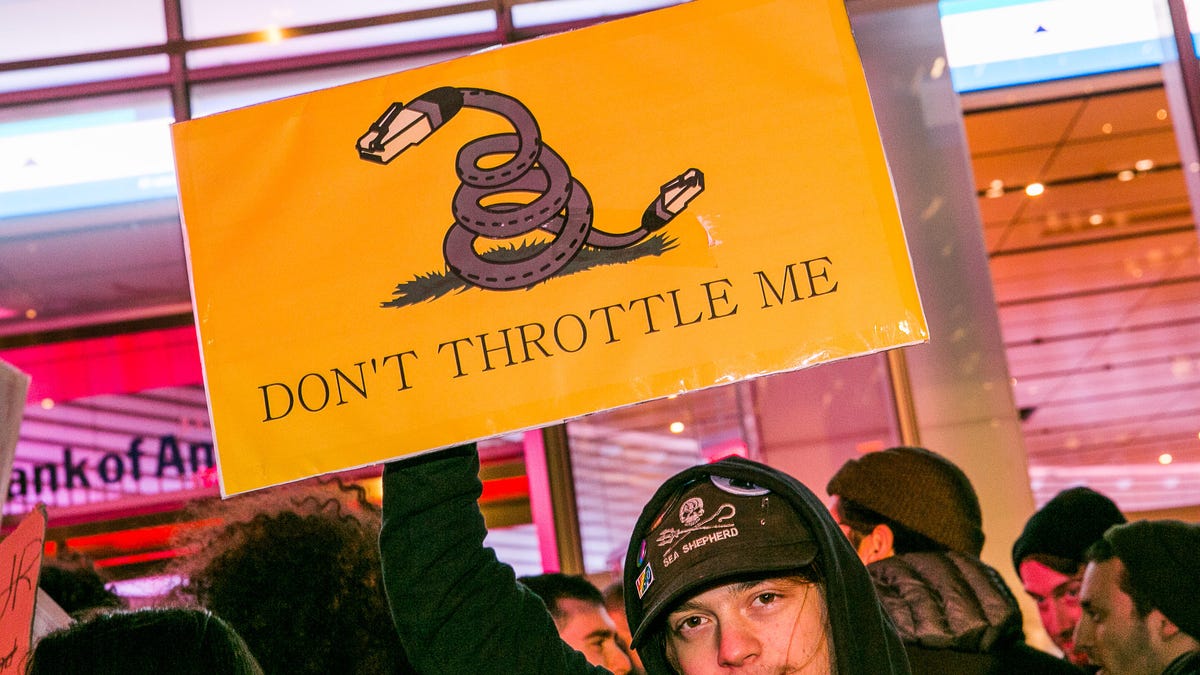Senators to FCC: Explain how net neutrality comments were rife with fraud
Two senators -- one Republican, one Democrat -- had their identities stolen and then used to file false comments on the FCC’s net neutrality proposals.

Net neutrality regulations have been a flashpoint.
Two US senators -- who both had their identities stolen and then used to post fake public comments on net neutrality -- are calling on FCC Chairman Ajit Pai to address how as many as 2 million fake comments were filed under stolen names.
"We were among those whose identities were misused to express viewpoints we do not hold," Sens. Jeff Merkley, a Democrat from Oregon, and Pat Toomey, a Republican from Pennsylvania, said Monday in a letter addressed to Pai. "We are writing to express our concerns about these fake comments and the need to identify and address fraudulent behavior in the rulemaking process."
In December, just one day before the FCC voted to reverse net neutrality rules, New York's attorney general reported that as many as 2 million comments submitted to the agency misused identities of real citizens. Net neutrality, the principle that all traffic on the internet should be treated equally as it's delivered to your screen, has been a political flashpoint as the FCC, led by Pai, rolled back 2015 regulations that prohibited broadband providers from blocking or slowing traffic. Earlier this month, the US Senate approved a resolution to turn back the FCC's repeal.
On Monday, the two senators suggested the FCC consider using Captcha technology to help weed out comments posted by bots and encouraged Pai to investigate the actors behind the millions of fake comments.
"We need to prevent the deliberate misuse of Americans' personal information and ensure that the FCC is working to protect against current and future vulnerabilities in its system," the senators wrote.

